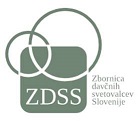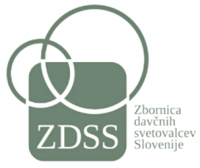Zbornica davčnih svetovalcev Slovenije se je dne 28.6.2023 udeležila konference ETAF V Bruslu. Tema je bila bodoča ureditev dejavnosti davčnega svetovanja v luči nameravane direktive SAFE.
Predsednik ZDSS je zastopal stališče, da mora direktiva SAFE urediti vsaj minimalne pogoje za to, kdo lahko uspešno izvaja davčno informiranje v posamezni državi EU.
ZDSS je podala stališče, da se ne strinja s predlogom tistih držav, ki imajo urejeno področje z regulativo, zaradi česar tudi nasprotujejo nameravani ureditvi, kot naj bi jo dosegla direktiva SAFE. Izrazili smo podporo stališču ETAF, da države, ki imajo urejeno področje, ne potrebujejo dodatne regulative, da pa države, kjer ne obstaja nobene regulative, nujno potrebujejo ureditev področja (preko direktive SAFE), saj je jasno, da mora tudi posameznik in podjetja v navedenih državah pridobiti pravno varno, celovito in popolno davčno informacijo.
Na podlagi pogovorov, je ETAF izrazila pripravljenost pomagati Sloveniji , da se področje uredi, preko skupne konference o Sloveniji (kot primer zakaj je regulativa ključna za pravno varnost plačnikov davkov), kjer bi lahko postavili tudi temelje za dobočo ureditev, tudi na EU ravni.
Udeležba ZDSS na konferenci je dokazala, tudi ETAF-u, da je direktiva SAFE potrebna, predvsem ali samo v državah, kjer področje ni ustrezno urejeno. Posledice neurejenega sistema davčnih posrednikov pa je velika siva ekonomija in neustrezno ravnotežje med pravicami in obveznostmi davčnih plačnikov pri nas. Zaradi sistematilčnega ignoriranja davčnih svetovalcev v Sloveniji (že 30 let) nosijo največje posledice pošteni plačniki davkov, ki se jim nekritično nalagajo dodatne davčne in stroškovne obveznosti brez resne pravne in stroškovne presoje (zadnji dokaz je sledenje, kar bo presojalo Ustavno sodišče). Posledice igoriranja davčne stroke so visoka korupcija pri nas (preko 3,5 mrd EUR) in visoka siva ekonoomija (preko 4 mrd neplačanih davkov letno) ter nezadovoljni plačniki davkov, ki se morajo za svojo pravico boriti v dolgih in dragih sodnih postopkih.
ZDSS se zahvaljuje ETAF-u, še posebej avstrijski in nemški davčno-svetovalni zbornici za pripravljenost pomagati urediti področje tudi v Sloveniji.
Predsednik ZDSS, mag. Franc Derganc
PRILOGI:
- Odziv za javnost ETAF
- Zapisniki ZDSS ob konferenci ETAF, 28.6.2023
Awaiting and discussing the SAFE proposal:
the expectations of the regulated tax profession
On 28 June 2023, the European Tax Adviser Federation (ETAF) organized a conference in Brussels on the tax profession’s perspective on the upcoming Directive to tackle the role of enablers that facilitate tax evasion and aggressive tax planning (Securing the Activity Framework for Enablers – SAFE).
In his welcome address, ETAF President Philippe Arraou recalled that since the last ETAF conference on SAFE exactly one year ago the European Commission’s thinking has evolved and so did ETAF’s position.
The Commission has now made up its mind between the different options proposed in its public consultation and the main components of the SAFE proposal have been publicly unveiled:
- A general prohibition for tax intermediaries to establish aggressive tax planning structures in connection with non-EU countries for EU taxpayers,
- A definition of aggressive tax planning,
- An EU register for EU and non-EU intermediaries providing tax advice in relation with third countries,
- And sanctions ranging from a fine on the intermediary or the client hiring a non-registered intermediary to the possible deregistration of the tax intermediary.
“The real question is: will the Commission deliver on its promise to only target the “rotten apples”? And how could it define aggressive tax planning without interfering with the work of law-abiding tax advisers?”, Philippe Arraou asked.
Initially planned for release in June 2023, the proposal has been indefinitely postponed, which has created a lot of uncertainties among tax stakeholders. The ETAF conference was nevertheless the opportunity for the speakers and the audience to publicly expose their expectations on this important proposal for the tax profession.
In his keynote speech, ETAF Head of office, Michael Schick, stated that to tackle the core of the problem and avoid disproportionate bureaucracy, it is necessary to target non-regulated tax professionals, operating outside any binding professional law framework, and to strictly limit the material scope to complex structures in non-EU countries.
“For countries in which there is zero regulation of the tax profession we understand that SAFE has a real potential, it will at least pose some ground rules and we clearly see the benefits here. For countries, like our members, who already have stronger rules, this can enter in contradiction with our own rules and potentially lower them”, he explained.
MEP Paul Tang, Chair of the FISC subcommittee of the European Parliament asked for some “sympathy” towards the European Commission and the delay of the proposal. “It is already a difficult job to try to define what is aggressive tax planning and what’s not, but so is trying to find a political support for it (…). It needs to be carefully introduced to have a chance”, he said.
For Manon François, Researcher at the EU Tax Observatory, SAFE would help having a more consistent framework for enablers. She also advocated for getting more information from the multinationals firms directly and enlarge the scope of the country-by-country reporting.
During the panel discussion moderated by Elodie Lamer, journalist for Tax Notes, there was a broad consensus that the SAFE proposal should target the “bad apples” and that we need a clear and practicable definition of aggressive tax planning.
Even if he admitted that you can have a “lighter touch” for countries that are already regulated, MEP Paul Tang argued for a broad regulation and registration. He also advocated for a disciplinary mechanism to make sure to get after the “enablers”.
Andrea Rabb, ETAF Board member and Vice-President of International Affairs of ETAF Hungarian member Moklasz said that, from her point of view, what the Commission wants to do with SAFE is not a genuine regulation. “Regulation is more. Regulation is about giving quality standards for the profession in each Member State and security to the Market”, she said.
She also warned that an EU register could run against the strong requirements set by countries who already regulate the tax profession and create a risk of counterproductive levelling down of qualified tax experts.
“Regulated EU tax professionals have their own national registers which is not a simple procedure but requires serious preconditions like successful exams, professional experience, continuous training, etc. We don’t think that a simple voluntary registration without any requirements attached to it should be treated the same way as it is done in EU countries with regulated professional rules”, she explained.
On the same day, in the ECON committee of the European Parliament, EU Tax Commissioner, Paolo Gentiloni, publicly recognized that without any progress on the UNSHELL proposal laying down rules to fight the misuse of shell entities and currently blocked in the Council of the EU, it is very difficult for the Commission to come up with the SAFE proposal.
For MEP Paul Tang, the link between the UNSHELL and the SAFE proposals is not obvious. However, he remained confident that the Commission will come forward with the SAFE proposal in the next half year.







